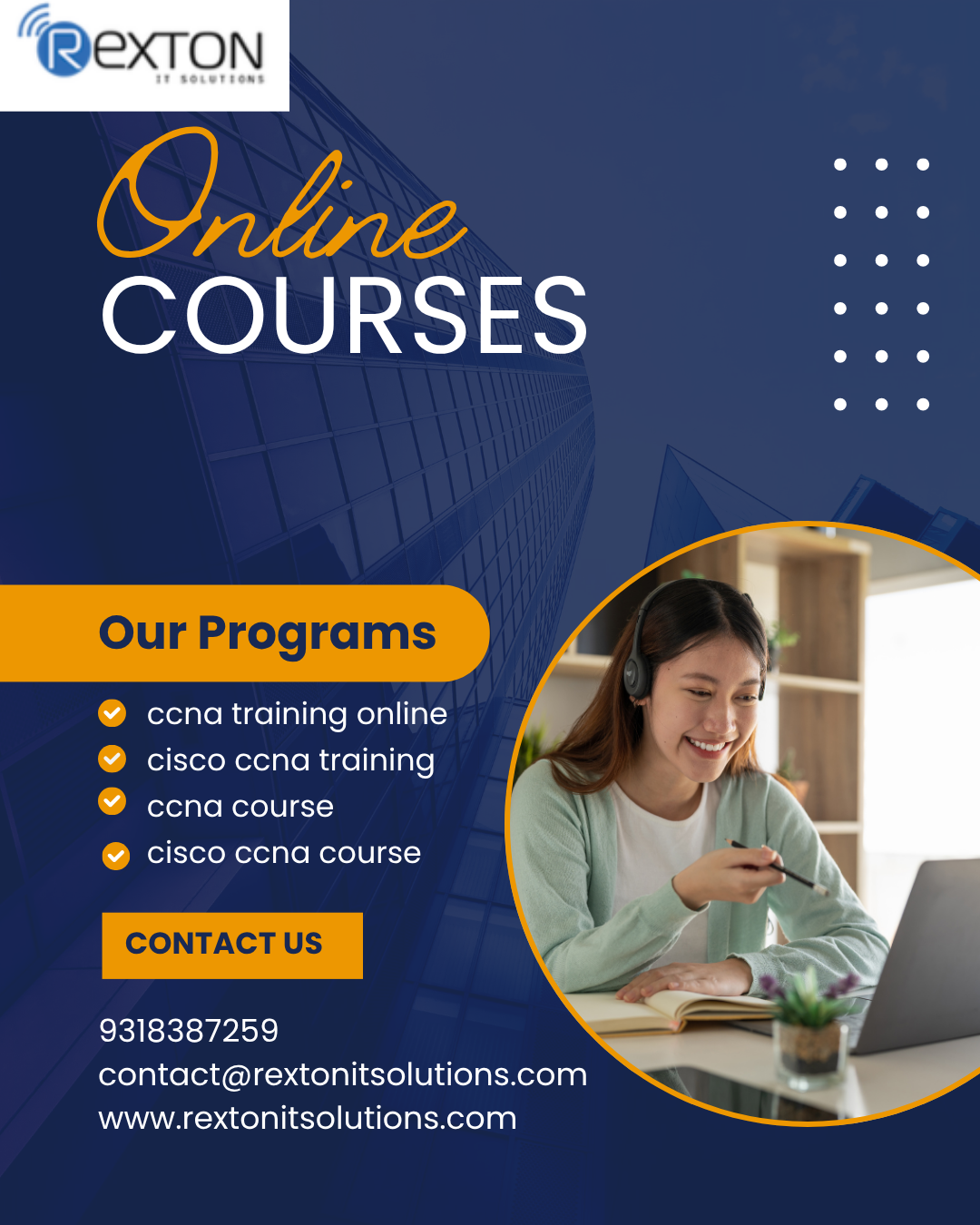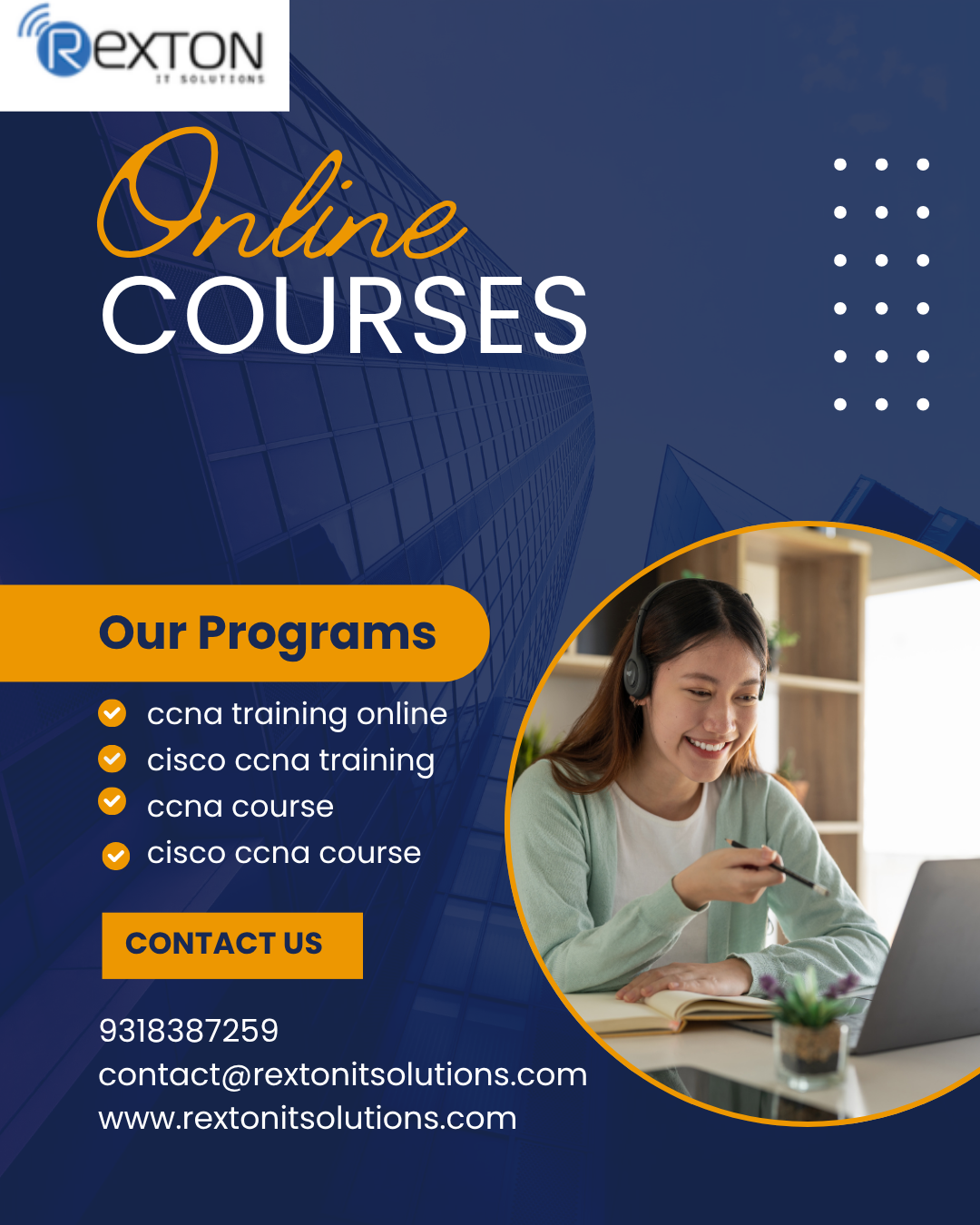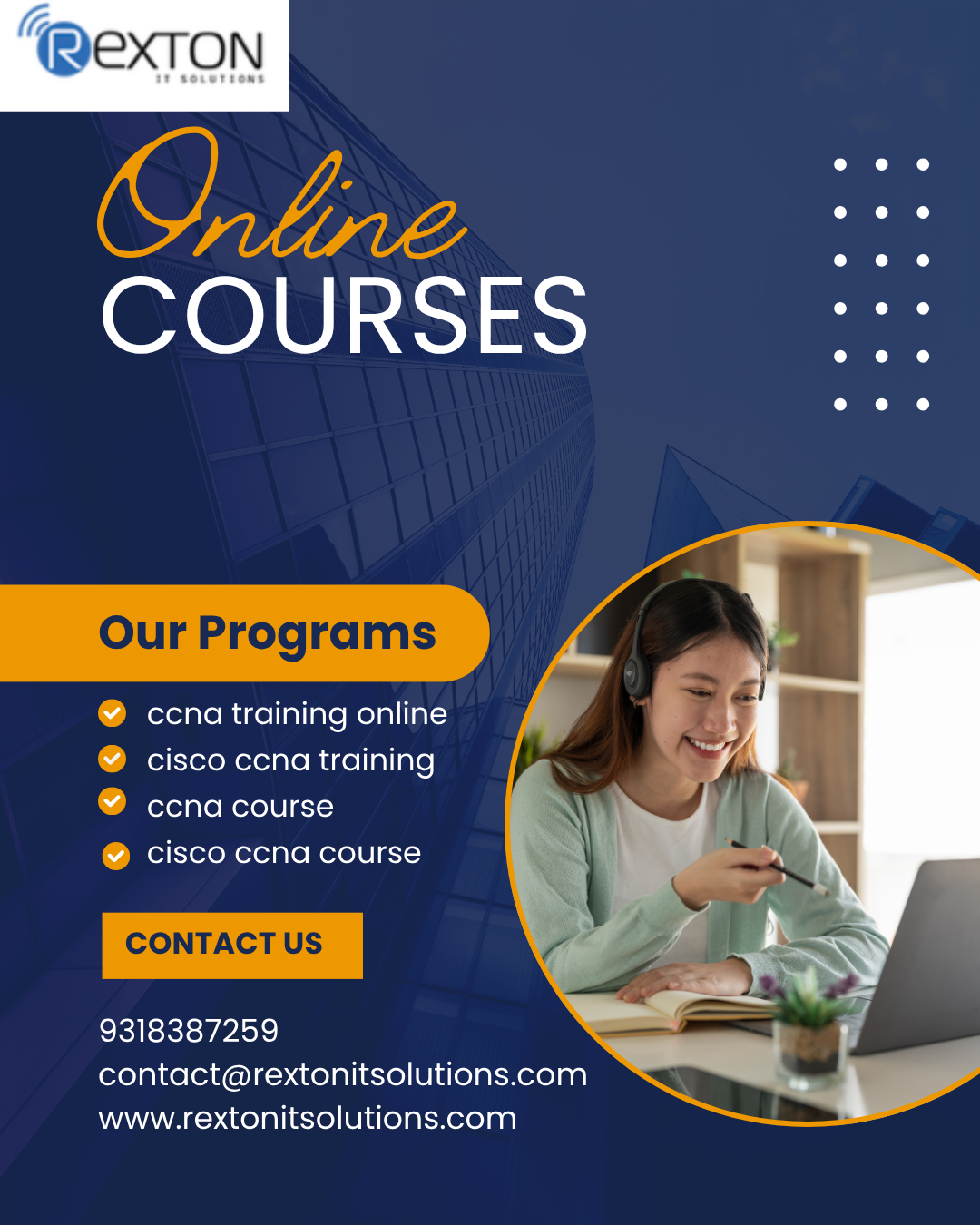The Ultimate Guide to Cisco CCNA Training in 2025

Strong 8k brings an ultra-HD IPTV experience to your living room and your pocket.
The Cisco Certified Network Associate (CCNA) certification continues to be a reference point for IT professionals looking to build their networking knowledge base. In 2025, with the technology landscape changing quickly and a growing demand for qualified network engineers, getting CCNA certified is as valid as ever. This guide will break down everything you need to be aware of about CCNA training in 2025, including what CCNA training is, how to prepare for CCNA exams, how CCNA has changed from previous years, and tips for success.
Why CCNA Certification Matters in 2025
The CCNA certification validates your ability to install, configure, operate, and troubleshoot medium-sized routed and switched networks. As businesses increasingly rely on cloud computing, IoT, and advanced cybersecurity measures, the demand for certified networking professionals continues to grow. According to industry reports, the global IT networking market is projected to expand significantly by 2025, driven by digital transformation and the adoption of 5G and SD-WAN technologies.
Earning a CCNA certification in 2025 offers several benefits:
- Career Advancement: CCNA is a globally recognized credential that opens doors to roles like network administrator, systems engineer, or cybersecurity analyst.
- Higher Earning Potential: Certified professionals often command higher salaries, with entry-level CCNA holders earning 10-20% more than non-certified peers.
- Versatility: The certification covers a broad range of topics, including networking fundamentals, IP connectivity, security, and automation, making it applicable to diverse IT roles.
- Employer Demand: Companies like Cisco, Amazon, and Microsoft prioritize CCNA-certified candidates for their networking expertise.
What’s New in CCNA Training for 2025?
Cisco regularly updates the CCNA curriculum to reflect emerging technologies and industry needs. In 2025, the CCNA 200-301 exam (introduced in 2020) remains the standard, with minor updates to incorporate advancements in automation, programmability, and cloud networking. Key areas of focus include:
- Networking Fundamentals: Understanding IPv4/IPv6, TCP/IP, and network topologies.
- IP Connectivity: Configuring and troubleshooting routing protocols like OSPF and EIGRP.
- Security Fundamentals: Implementing basic security configurations, including ACLs and VPNs.
- Automation and Programmability: Using tools like Python, REST APIs, and Cisco DNA Center for network automation.
- Wireless Networking: Configuring and Securing Modern Wireless Networks with Wi-Fi 6.
- Cloud and Virtualization: Understanding how Cisco solutions integrate with cloud platforms like AWS and Azure.
The 2025 CCNA exam emphasizes practical skills, with a significant portion dedicated to hands-on labs and simulations. Cisco has also introduced more focus on software-defined networking (SDN) and intent-based networking, reflecting the shift toward automated, scalable network architectures.
Choosing the Right CCNA Training Program
Selecting the right training program is critical to your success. In 2025, you have several options, each with its advantages:
Cisco Official Training:
- Pros: Delivered by Cisco Learning Partners, these courses offer access to official materials, certified instructors, and hands-on labs using Cisco Packet Tracer or real equipment.
- Cons: Higher cost compared to other options.
- Best For: Professionals seeking structured, instructor-led training.
Online Learning Platforms:
Platforms like Udemy, Pluralsight, and CBT Nuggets offer affordable, self-paced CCNA courses.
- Pros: Flexible schedules, cost-effective, and often include practice exams.
- Cons: Less interactive than instructor-led courses; quality varies by provider.
- Best For: Self-motivated learners with tight budgets.
Bootcamps:
Intensive, short-term programs (typically 5-10 days) are designed to prepare you for the exam quickly.
- Pros: Fast-paced, immersive learning with hands-on labs.
- Cons: Can be overwhelming for beginners; expensive.
- Best For: Professionals with some networking experience who need rapid certification.
Self-Study:
Use Cisco’s official CCNA study guide, free online resources, and tools like Packet Tracer or GNS3 for labs.
- Pros: Most cost-effective; allows complete control over pace.
- Cons: Requires strong discipline and troubleshooting skills for labs.
- Best For: Experienced learners comfortable with self-directed study.
When choosing a program, consider your learning style, budget, and timeline. Look for courses updated for the 2025 CCNA exam to ensure relevance.
Preparing for the CCNA Exam in 2025
The CCNA 200-301 exam is a 120-minute test with 90-110 questions, including multiple-choice, drag-and-drop, and simulation-based questions. To prepare effectively, follow these steps:
Understand the Exam Blueprint:
Review Cisco’s official exam topics on their website. Focus on high-weighted areas like IP connectivity (25%) and network fundamentals (20%).
Familiarize yourself with the exam format using practice tests.
Build a Study Plan:
Dedicate 2-3 months for preparation, studying 2-3 hours daily.
Break down topics into weekly goals (e.g., Week 1: Subnetting, Week 2: VLANs).
Use a mix of resources: books (e.g., Cisco Press CCNA 200-301 Official Cert Guide), videos, and labs.
Hands-On Practice:
Set up a home lab using Cisco Packet Tracer, GNS3, or physical equipment (e.g., Cisco 2900 series routers).
Practice configuring VLANs, routing protocols, and NAT to build muscle memory for simulations.
Leverage Practice Exams:
Use tools like Boson ExSim or Pearson’s practice tests to simulate the exam environment.
Aim for consistent scores above 85% before scheduling the exam.
Join Study Groups:
Engage with communities on Reddit (r/ccna), Discord, or Cisco’s Learning Network.
Discuss topics, share resources, and troubleshoot lab issues with peers.
Tips for Success on Exam Day
Schedule Strategically: Book your exam at a time when you’re most alert (e.g., morning).
Review Key Concepts: The night before, skim through subnetting charts, command syntax, and key protocols.
Manage Time: During the exam, flag difficult questions and return to them later to avoid getting stuck.
Stay Calm: Simulations can be complex, but practice labs will prepare you to troubleshoot effectively.
Maintaining Your CCNA Certification
The CCNA certification is valid for three years. To maintain it, you can:
Earn Continuing Education (CE) Credits: Attend Cisco-approved training, webinars, or events.
Pass a Higher-Level Exam: Pursue certifications like CCNP or CCIE to recertify your CCNA automatically.
Retake the CCNA Exam: If no other certifications are planned, retake the 200-301 exam before expiration.
Career Opportunities After CCNA
Once certified, you can explore roles like:
- Network Administrator: Manage and maintain enterprise networks.
- Network Support Engineer: Troubleshoot network issues for clients or organizations.
- Cybersecurity Analyst: Leverage CCNA security knowledge for entry-level security roles.
- Cloud Network Engineer: Work with hybrid cloud environments using Cisco solutions.
In 2025, CCNA holders are well-positioned for roles in emerging fields like SD-WAN, IoT, and network automation. To stay competitive, consider complementing your CCNA with skills in Python, AWS, or cybersecurity.
Common Challenges and How to Overcome Them
- Subnetting: Practice daily using subnetting calculators and manual methods until it becomes second nature.
- Time Management: Balance study with work by setting realistic goals and using productivity tools like Pomodoro timers.
- Lab Setup: If equipment is unaffordable, rely on free simulators like Packet Tracer or rent virtual labs from providers like INE.
- Exam Anxiety: Simulate exam conditions during practice to build confidence.
Resources for CCNA Training in 2025
- Books: “CCNA 200-301 Official Cert Guide” by Wendell Odom, “31 Days Before Your CCNA Exam” by Allan Johnson.
- Online Courses: CBT Nuggets, Udemy (David Bombal’s CCNA course), INE.
- Free Resources: Cisco’s DevNet, YouTube channels (e.g., NetworkChuck, Jeremy’s IT Lab), and Packet Tracer labs.
- Practice Exams: Boson ExSim, Pearson VUE practice tests.
Wrapping It Up!
The Cisco CCNA certification in 2025 is a gateway to a rewarding career in networking. By choosing the right training program, building a structured study plan, and leveraging hands-on practice, you can ace the exam and unlock new opportunities. Stay updated with Cisco’s evolving curriculum, focus on automation and cloud skills, and engage with the networking community to maximize your success. Whether you’re a beginner or an experienced IT professional, the CCNA is a powerful credential to propel your career forward in the dynamic world of networking.
Note: IndiBlogHub features both user-submitted and editorial content. We do not verify third-party contributions. Read our Disclaimer and Privacy Policyfor details.





